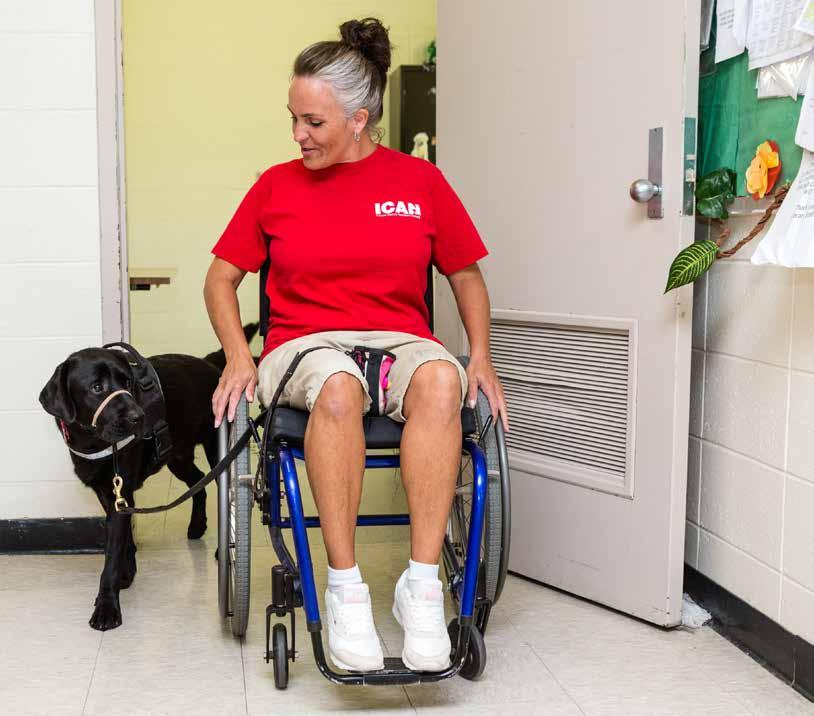Writer / Christy Heitger-Ewing Photography Provided by Liz Kaye
Sometimes a dog can make all the difference. No one knows this better than the folks at the Indiana Canine Assistant Network (ICAN). Founded in February of 2002, the statewide nonprofit has helped restore a sense of hope and independence to two groups of people - those with disabilities and those who benefit from having a service dog, as well as the inmates who train the canines. Though the organization also places dogs to help with diabetic and seizure alert, it focuses primarily on mobility assistance. ICAN typically has about 60 dogs in its program at any given time. They work out of three state prisons - the Indiana Women’s Prison in Indianapolis, the Pendleton Correctional Facility, and the Correctional Industrial Facility at Pendleton. “We’re a pretty unique program,” says Denise “Dino” Sierp, ICAN’s director of development and outreach. “There are maybe two or three programs in the country where the prison training program has a mission to rehabilitate. It’s not just a job.” ICAN has eight paid staff members and roughly 200 volunteers who spend their time and energy ensuring that the program is a success. This includes whelpers and litter sitters (people who help the breeder dog and new puppies), as well as puppy raisers, furlough parents, and people who drive the dogs to appointments.
PAW PARTNERS
ICAN Training Program Changes Lives
atZionsville.com / OCTOBER 2020 / ZIONSVILLE MAGAZINE / 19
When their beloved family dog passed away in the fall of 2018, Lori Steininger and her husband joined the volunteers at ICAN and furloughed dogs-in-training. “ICAN is truly a win-win,” Steininger says. “The act of training and caring for these dogs makes such an impact on [prisoners’] mental health and future lives. On the other end of the leash, the client’s life is impacted deeply by a partner that can help that person become independent.”







